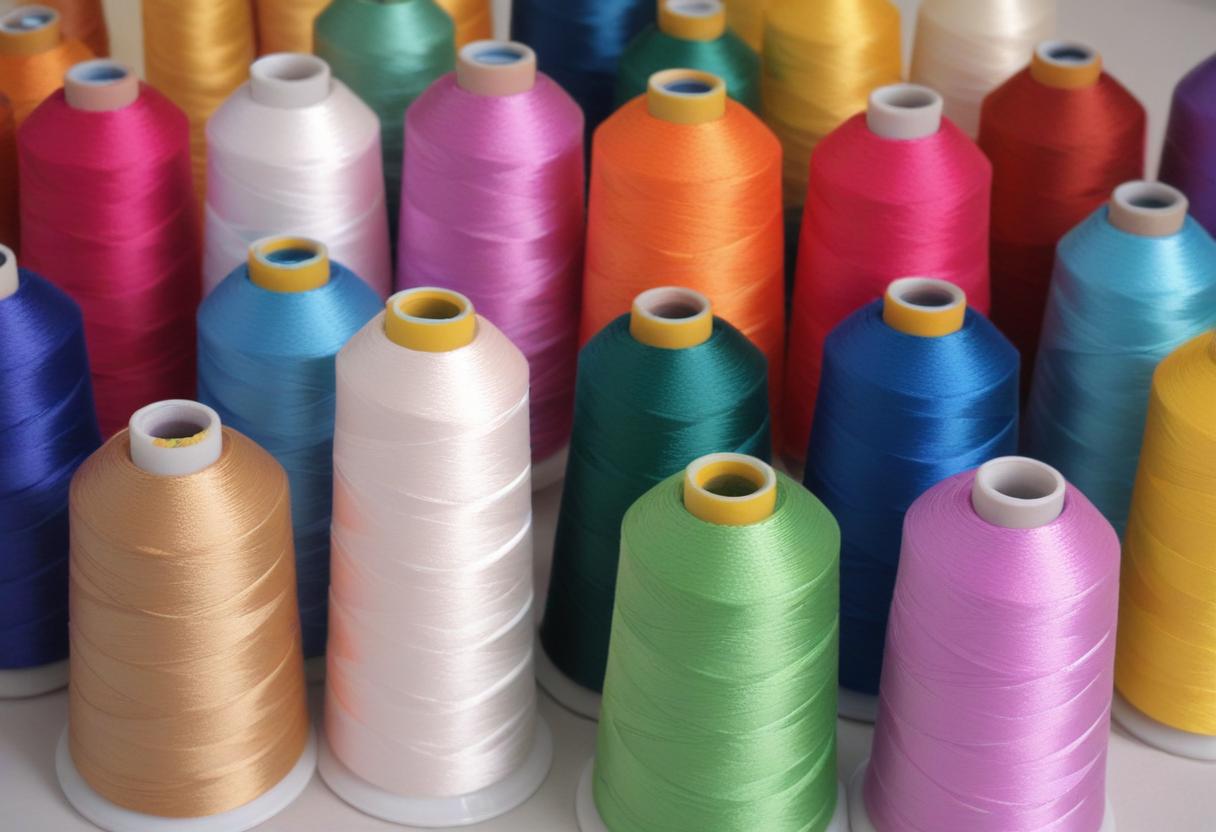Embroidery thread refers to the material used in the art of embroidery to create decorative designs on fabric. Similar to how artists use different types of paint to achieve various effects in their paintings, embroiderers select from a range of thread types to bring their designs to life. These threads vary in characteristics such as texture, sheen, and strength, making them suitable for different embroidery techniques and applications. By understanding the properties of each type of thread, embroiderers can choose the most appropriate one for their specific project, ensuring the desired aesthetic outcome and longevity of the embroidery work.
Embroidery thread comes in various types, each with its own characteristics suited for different types of embroidery projects. Here are some common types of embroidery thread –
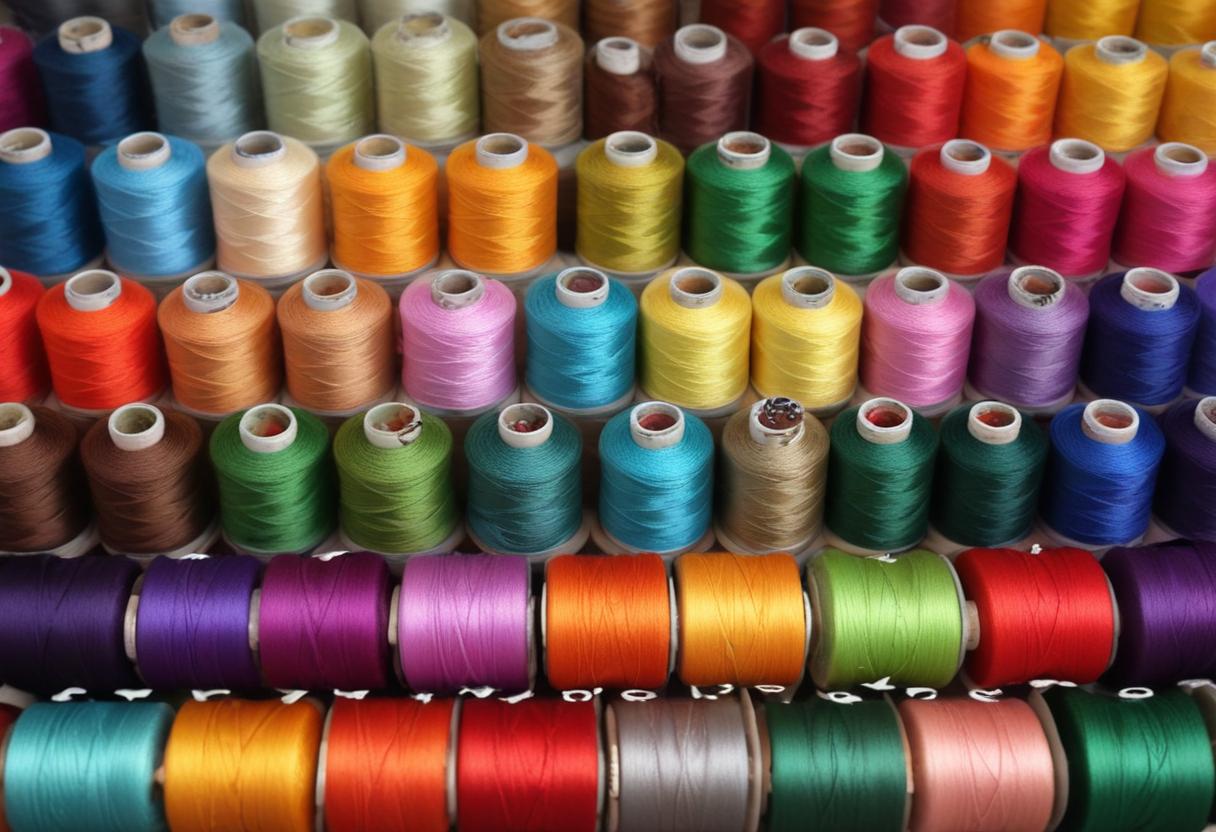
Cotton Embroidery Thread: Cotton thread is a popular choice for embroidery due to its natural fibers, which provide strength, durability, and versatility. It comes in various weights, such as 30wt, 40wt, and 50wt. Finer weights like 50wt are suitable for delicate embroidery work and intricate designs, while heavier weights like 30wt are ideal for bold stitching and decorative effects. Cotton thread is commonly used for both hand and machine embroidery on a wide range of fabrics.
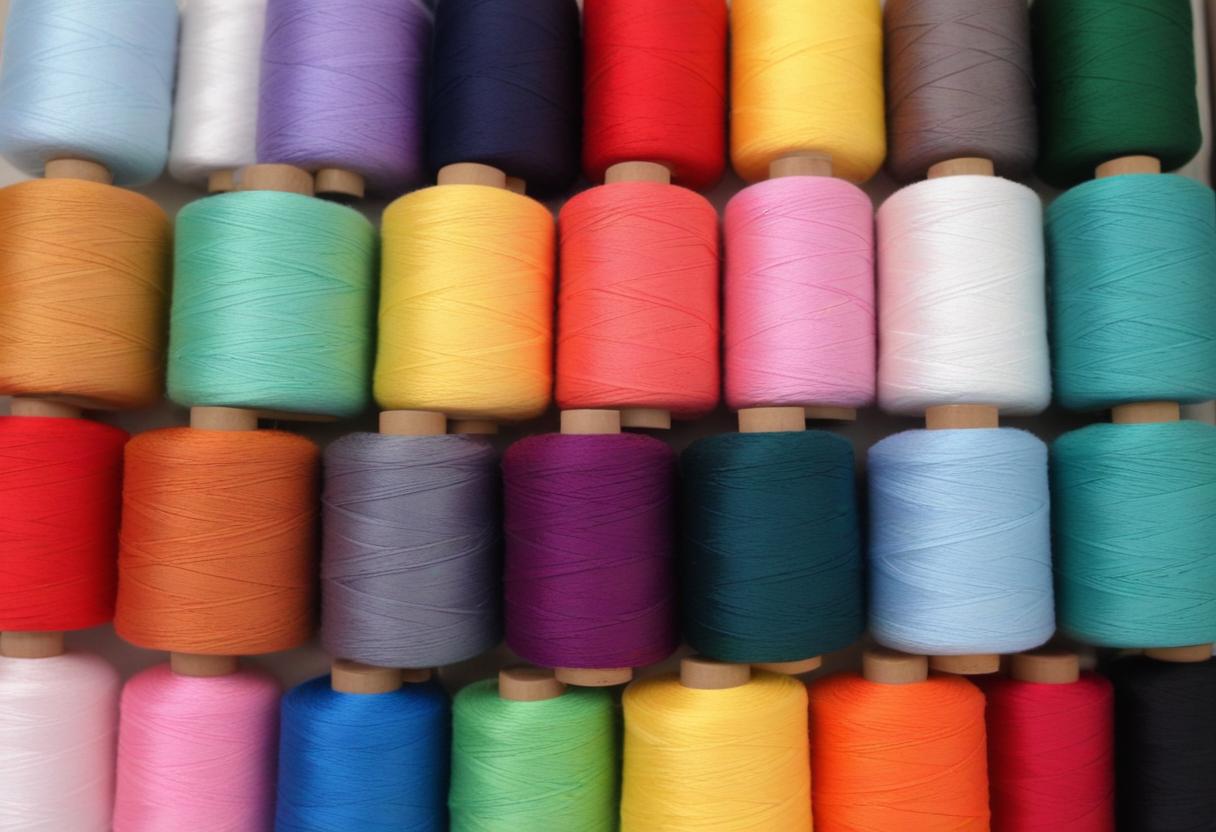
Polyester Embroidery Thread: Polyester thread is known for its vibrant colors, high sheen, and resistance to fading, making it a preferred choice for machine embroidery and decorative stitching. It’s strong, durable, and stands up well to frequent washing and exposure to sunlight. Polyester thread is suitable for a wide range of fabrics and projects, offering excellent stitch definition and colorfastness.
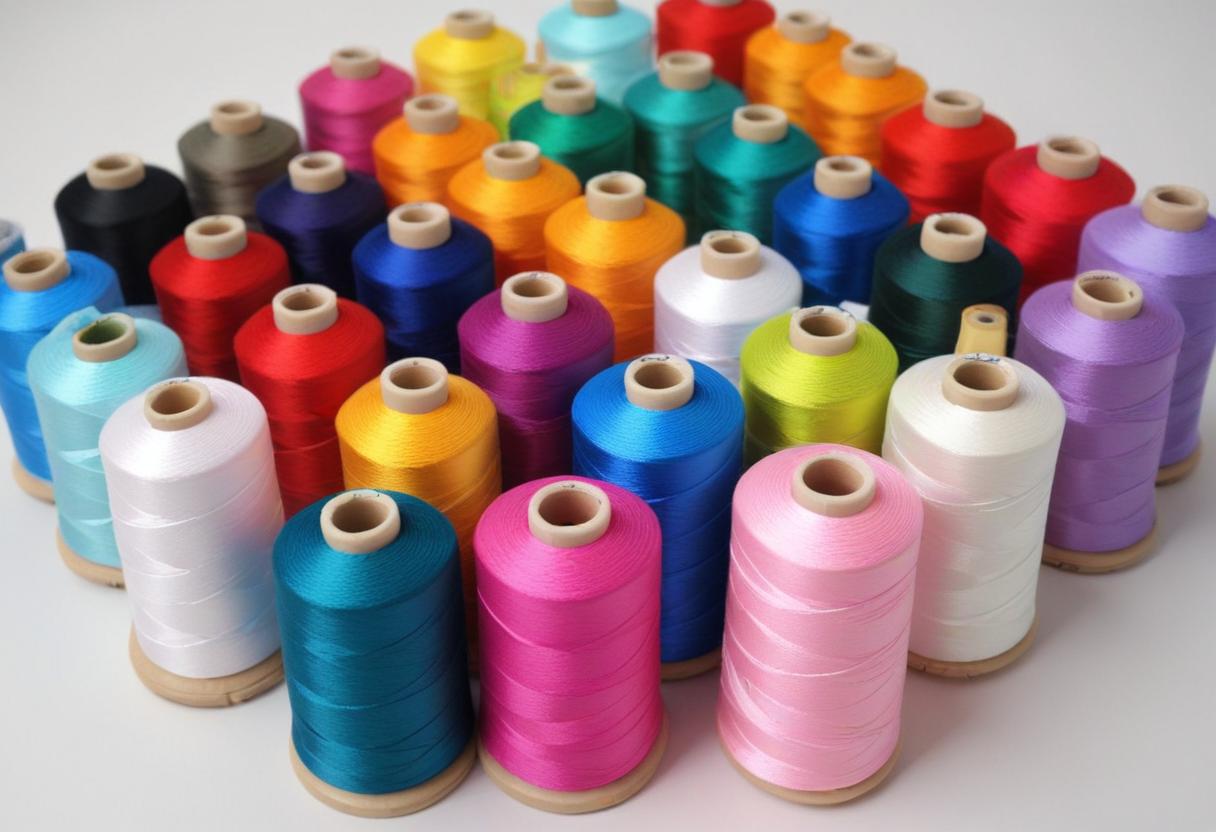
Rayon Embroidery Thread: Rayon thread is prized for its silky texture, lustrous sheen, and smooth finish, making it perfect for adding shine and dimension to embroidery designs. It’s lightweight and easy to work with, flowing smoothly through the fabric and creating beautiful stitch results. Rayon thread comes in a wide range of colors and shades, offering endless possibilities for creative expression.

Silk Embroidery Thread: Silk thread is considered the epitome of luxury in embroidery, valued for its softness, sheen, and rich color saturation. It’s ideal for fine embroidery work, heirloom projects, and delicate fabrics, offering a luxurious finish and beautiful drape. Silk thread adds an elegant touch to embroidery designs, enhancing their overall beauty and sophistication.
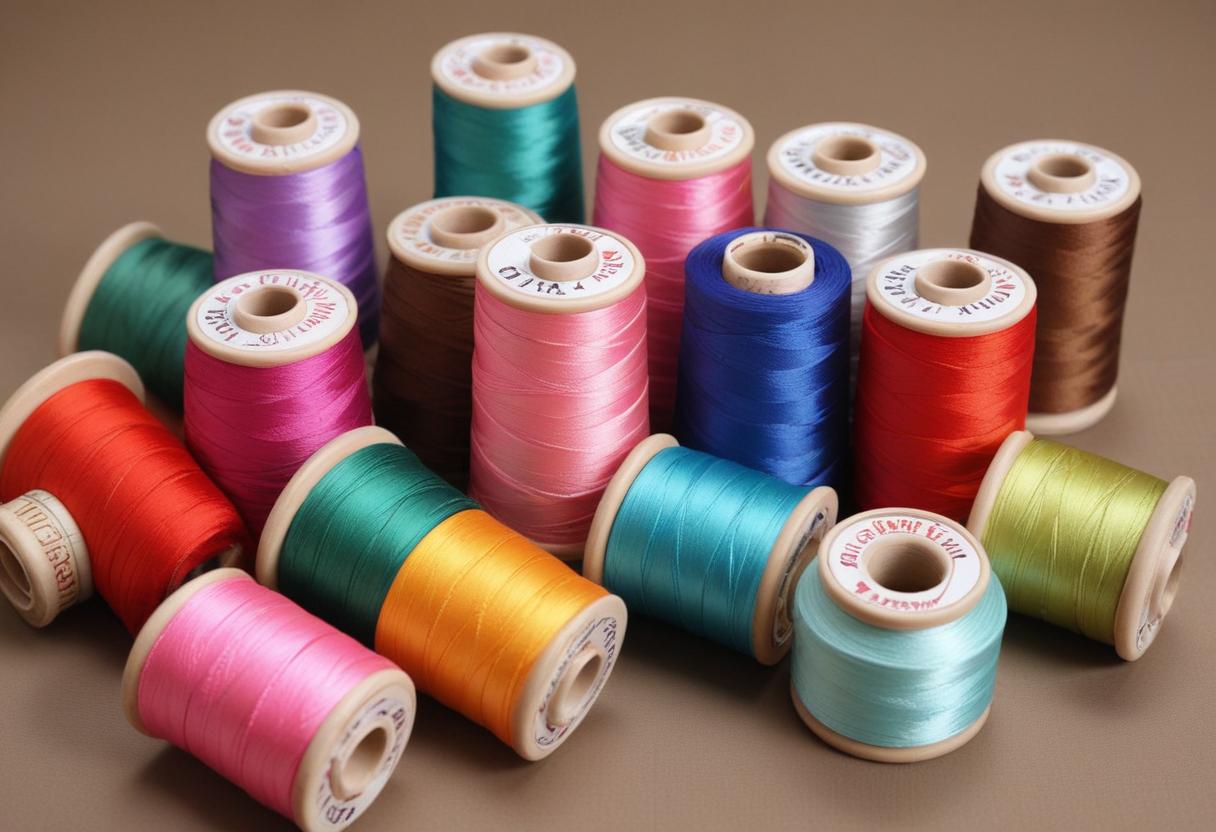
Metallic Embroidery Thread: Metallic thread is made from metallic fibers or wrapped around a core thread, creating a shimmering and reflective effect that adds sparkle and dimension to embroidery designs. It’s often used for decorative stitching, accents, and embellishments, adding a touch of glamour and sophistication to garments, accessories, and home decor items.
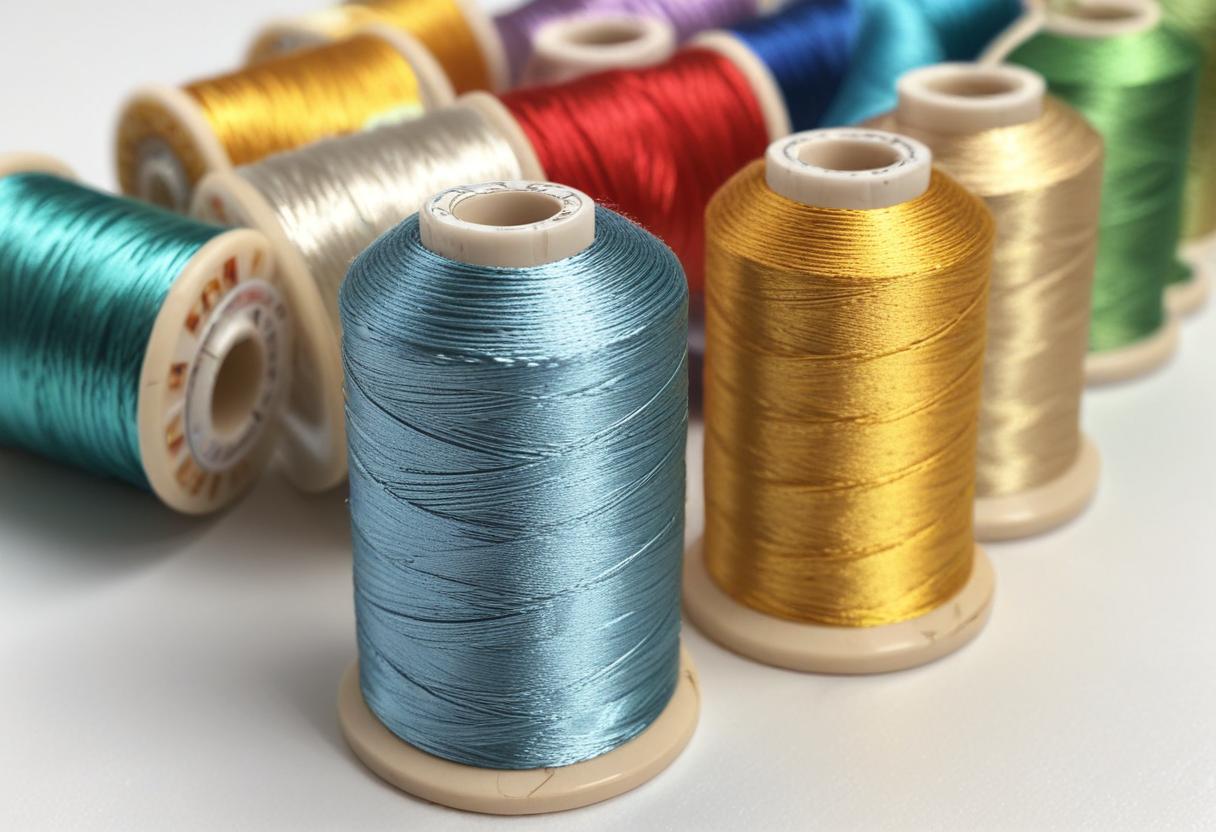
Wool Embroidery Thread: Wool thread is prized for its softness, warmth, and texture, making it perfect for creating dimensional embroidery designs and adding cozy accents to projects. It’s commonly used for crewel embroidery, needlepoint, and decorative stitching on wool fabrics, offering a rustic and vintage aesthetic.
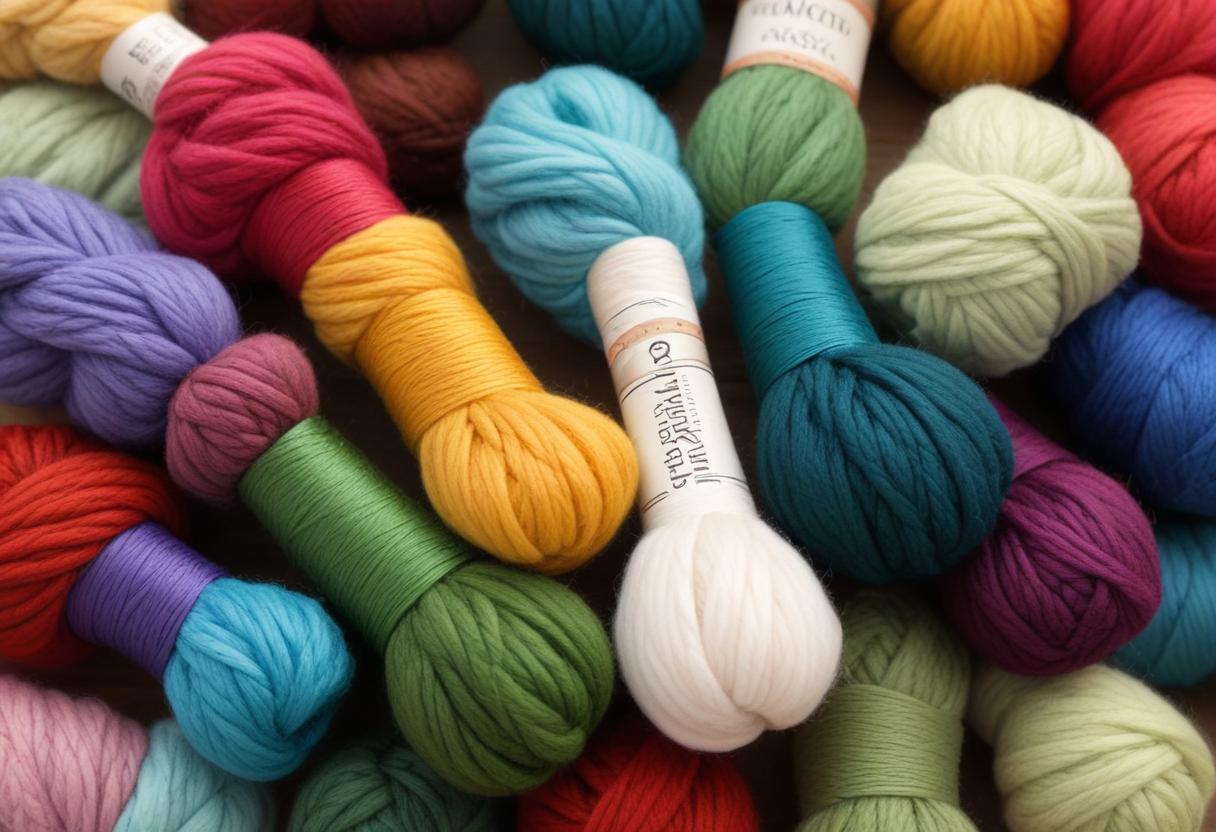
Linen Embroidery Thread: Linen thread is made from flax fibers and is valued for its strength, durability, and natural appearance. It’s ideal for traditional hand embroidery techniques, such as whitework, drawn thread work, and blackwork, offering a rustic and vintage aesthetic. Linen thread adds a unique texture and character to embroidery designs, enhancing their overall beauty and charm.
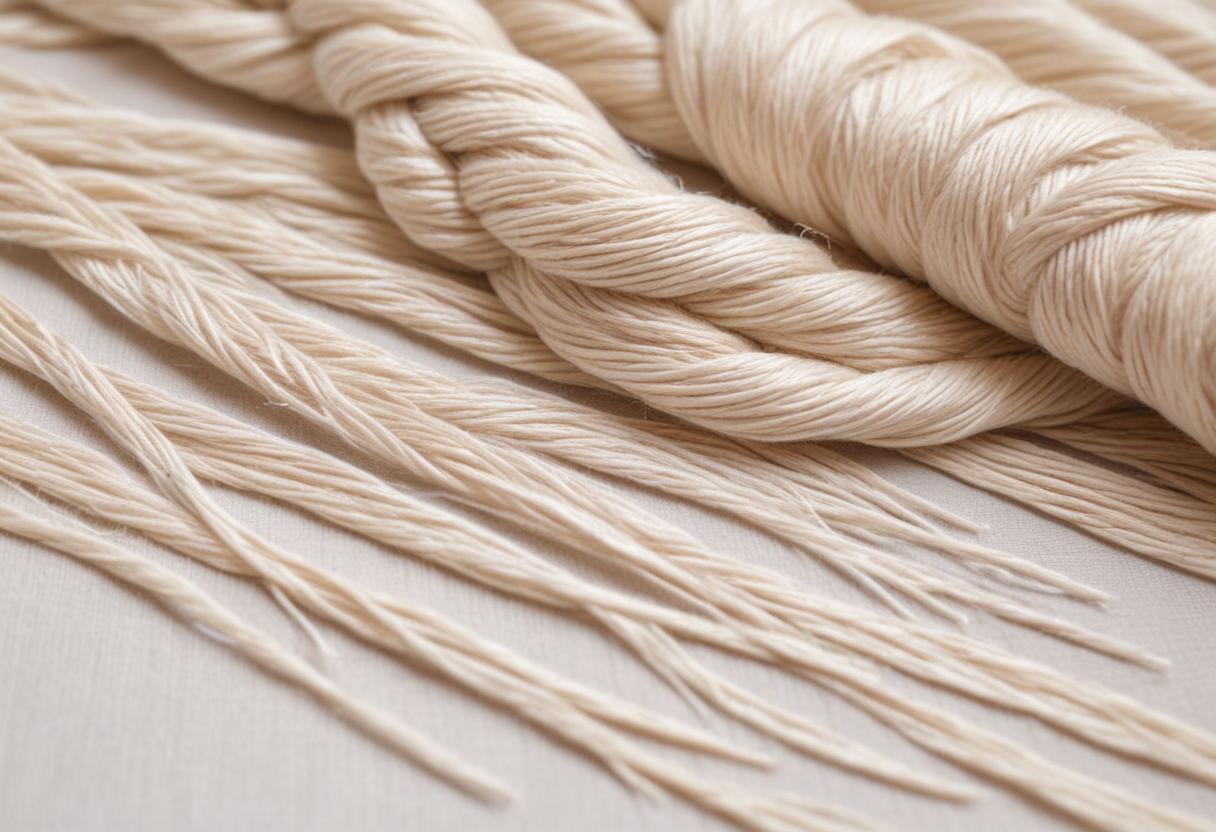
Variegated Embroidery Thread: Variegated thread features multiple colors blended together in a single strand, creating a gradient or multi-color effect when stitched. It adds visual interest and dimension to embroidery designs, making them appear more dynamic and textured. Variegated thread is perfect for creating unique and eye-catching effects, adding depth and personality to embroidery projects.
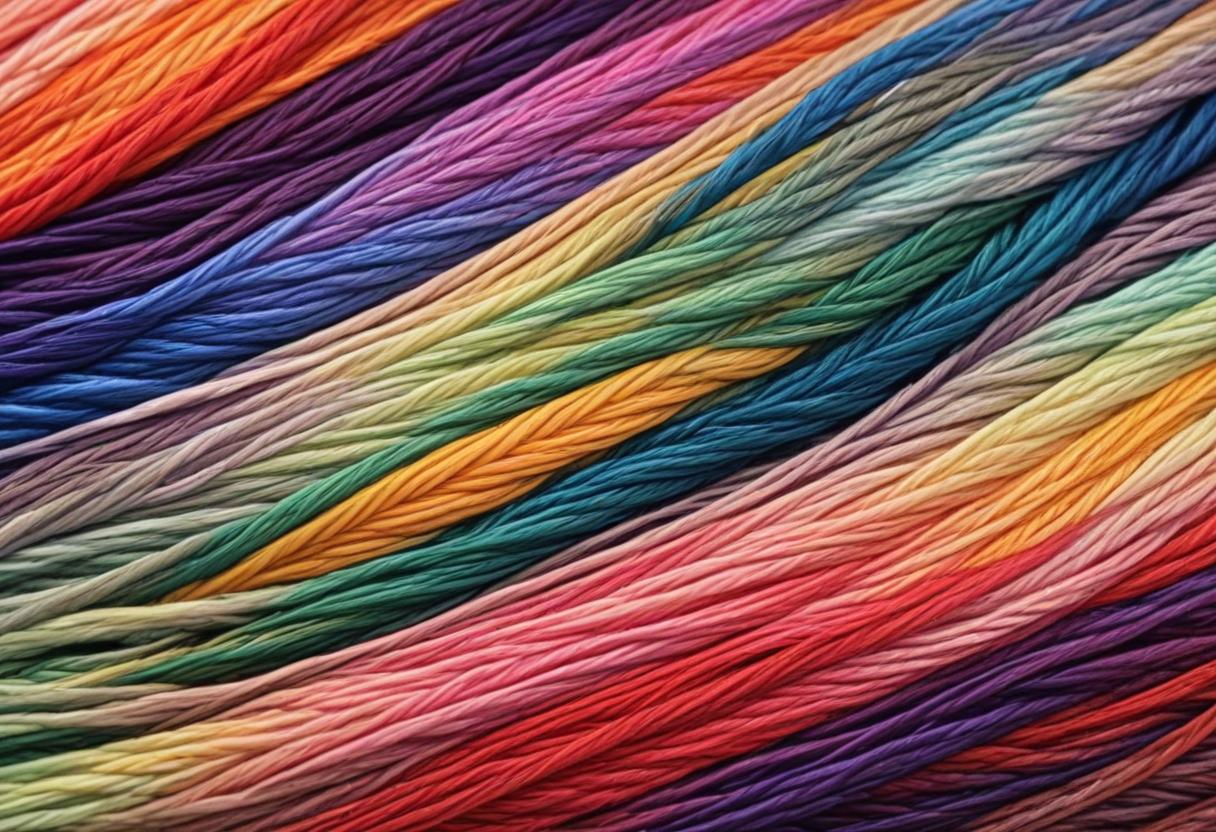
Specialty Embroidery Threads: Specialty threads include metallic, glow-in-the-dark, neon, and specialty-effect threads that offer unique textures, finishes, or properties for specific embroidery projects. These threads are often used for decorative stitching, accents, and embellishments to create eye-catching effects and add personality to embroidery designs. Specialty threads allow embroiderers to unleash their creativity and experiment with different techniques and effects, making each project truly one-of-a-kind.
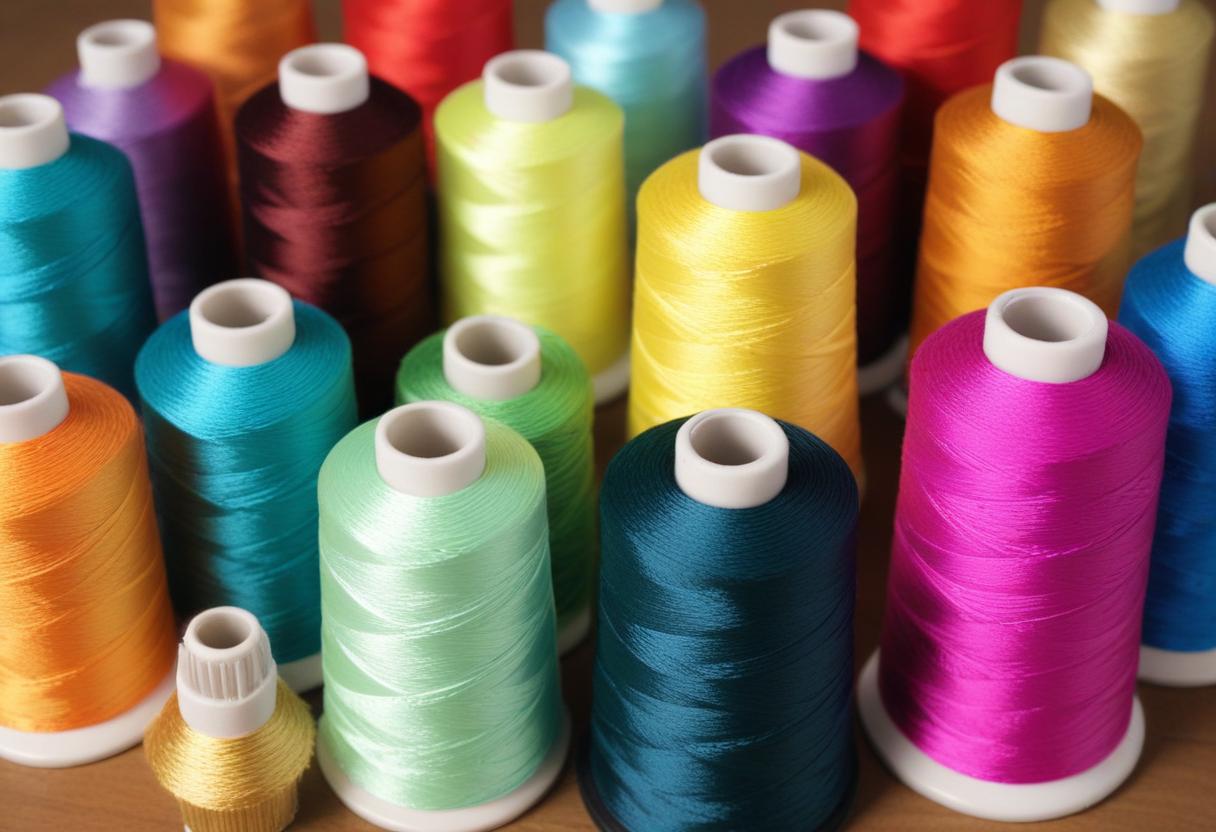
Nylon Embroidery Thread: Nylon thread is known for its strength, durability, and elasticity, making it a versatile choice for various embroidery projects. It’s resistant to abrasion, moisture, and mildew, making it suitable for outdoor and marine applications. Nylon thread is commonly used for heavy-duty embroidery on fabrics like canvas, denim, and leather, as well as for decorative stitching and topstitching on garments and accessories. It comes in a wide range of colors and thicknesses, offering flexibility and ease of use for both hand and machine embroidery.
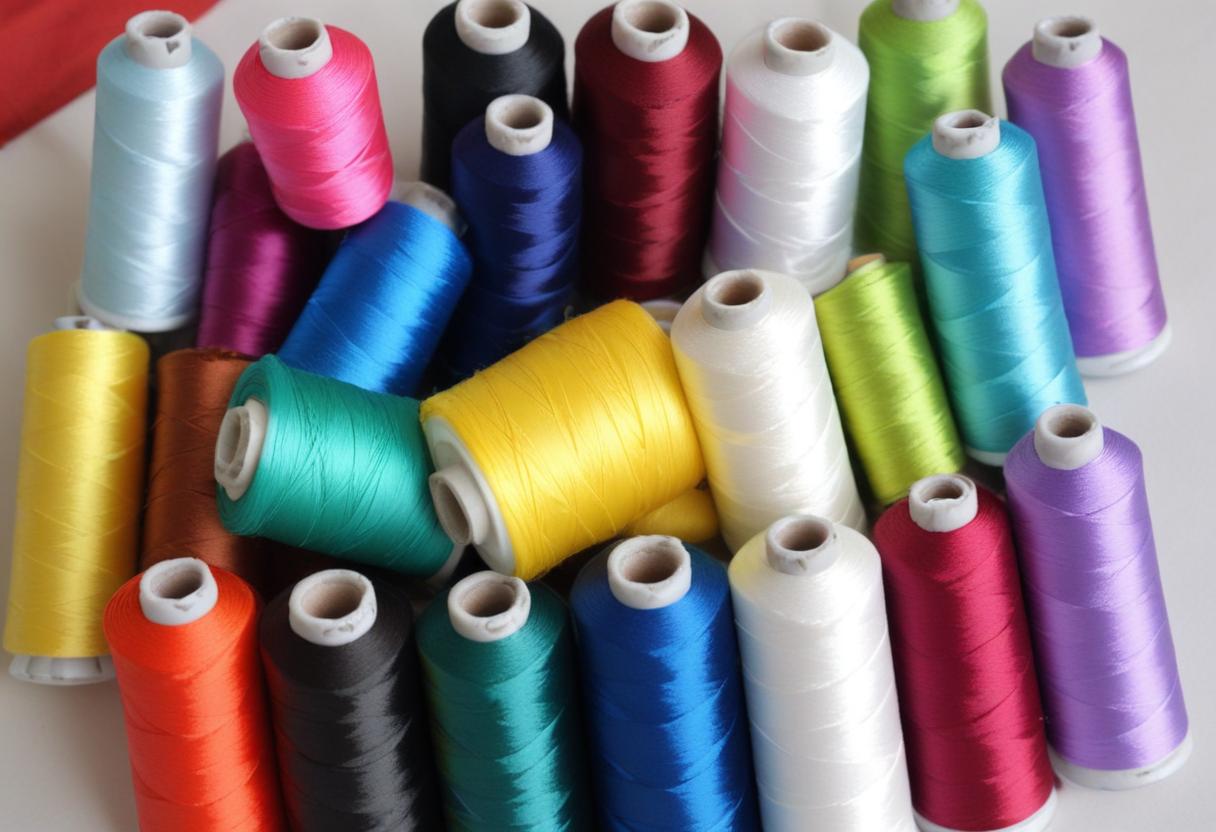
Acrylic Embroidery Thread: Acrylic thread is lightweight, soft, and often used as a budget-friendly alternative to other types of embroidery thread. It’s suitable for basic embroidery projects and crafting purposes but may not offer the same level of sheen or durability as other threads.
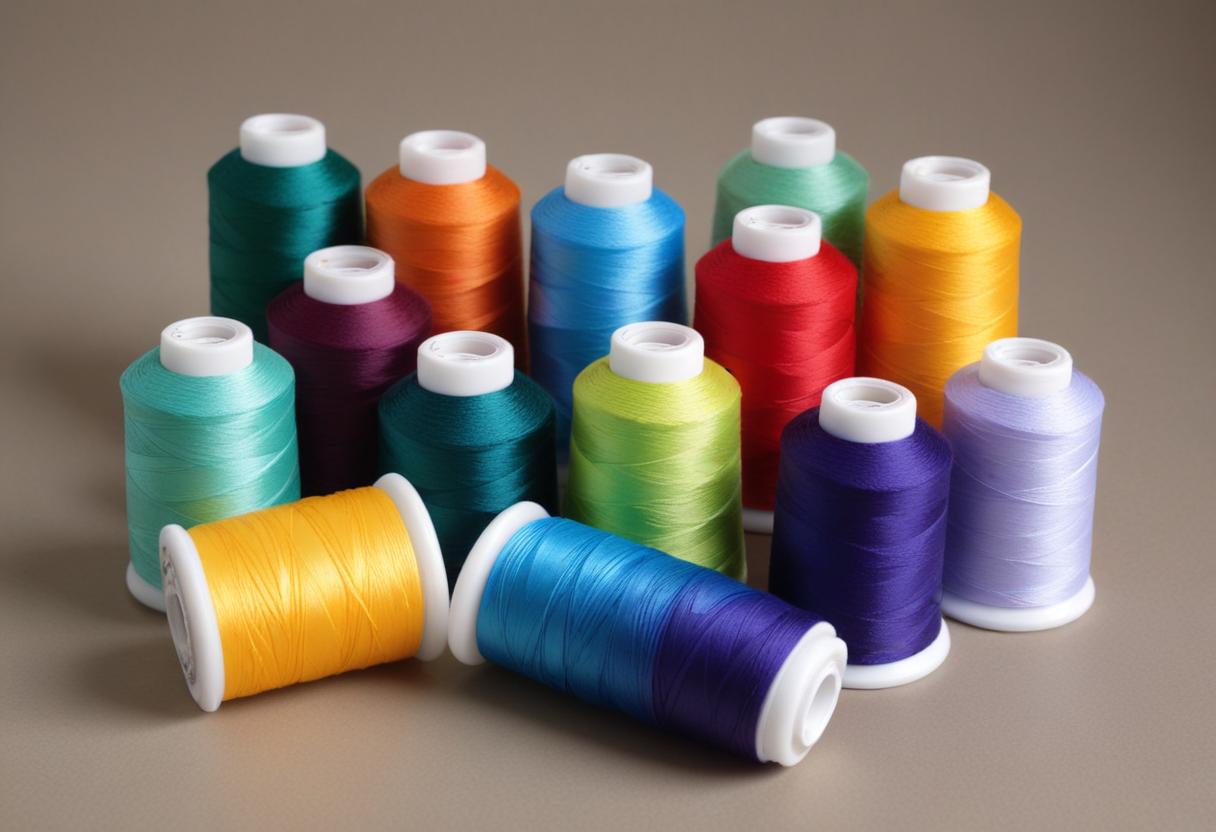
Blend Embroidery Thread: Blend threads are made from a combination of different fibers, such as cotton/polyester blends or silk/wool blends. These threads offer a balance of qualities from each fiber type, providing versatility and enhanced performance for specific embroidery projects.
